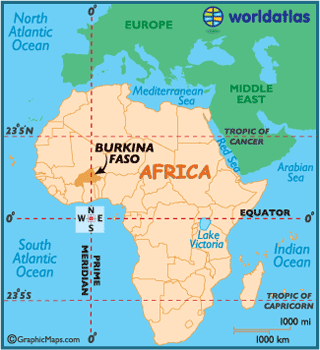This week due to popular demand, we are returning to our discussion on Cell Phones in Africa. Or more specifically, the future of them.

Okay, Africans do use cell phones for phone calls- we’ve established that. But they use them way less then Canadians. Why? Because calls cost a lot money. Remember, there are very are few unlimited phone and text packages here, and they are generally too expensive for the average Burkinabe. So they text alot!
But what I found fascinating here – and blame it on the fact that I left Canada about five and a half years ago and I am totally disconnected – is the other use for cell phones.
Many locals use the phone as payment system.
Banking in Burkina
The penetration of the banking system in Burkina Faso is marginal compared Canada . The average Burkinabe does not have a bank account as the average Burkinabe does not work in the formal economic sector. Instead of banks, the cell phone is used to transfer money.. Burkinabe send money to their loves one while in the country – or while working abroad by using their cell phone.
Airtel is the most common used telephone company for transferring money. Each small village I have been to, and I mean small, has an Airtel kiosk where the person who receives the money can go and get it. All they need is the verification code and their National Identity card if they have one… but in villages, like small towns, everyone knows everyone so there is not a big problem with stolen identity!
The impact of this service on the population is, you can imagine, tremendous. There is no longer a need to go to a Western Union, which are usually not found in the small villages and which requires identification documents that many people in these villages don’t have.
Another important benefit to paying with the cell phone is the ability to pay bills at distance, including school fees. In Côte d’Ivoire, and in Burkina, parents are now able to pay their kids’ school fees by phone. This means that the mother (normally…) does not have to walk to the school, wait in line for hours and then be subject to the administration for bribery… because of course, parents have to pay the administrator who register their children a little something to make sure that the kids gets registered to the school.

So there are many little ways in which the cell phones have changed the lives and culture of their users here.
Burkina Uprising
Like other places in the world, cell phones have also had geopolitical ramifications here as well.
On October 30 and 31st, 2014 the Burkina uprising happened.
![]() Cell phones were instrumental in keeping the population abreast of what was going on and for the opposition to communicate with its members to tell them where the march was going and what to do – or not. The cell phones allowed people to post to social media – and in spite of the government’s efforts to block internet, thanks for the use of cell phones, we all were apprised of what was going on.
Cell phones were instrumental in keeping the population abreast of what was going on and for the opposition to communicate with its members to tell them where the march was going and what to do – or not. The cell phones allowed people to post to social media – and in spite of the government’s efforts to block internet, thanks for the use of cell phones, we all were apprised of what was going on.
In the end the internet, such as it is, was restored quickly!
